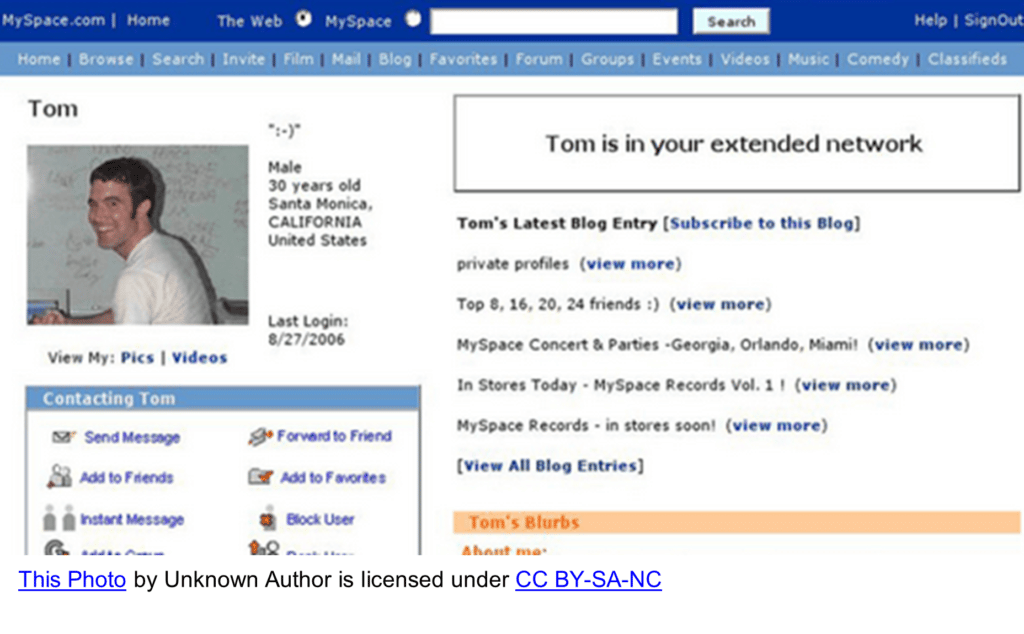How to Market a College with a Small Budget
Learn how to market a college with a small budget by leveraging generative AI, social media, and strategic thinking.
Marketing Strategies
Relationships are the key to successful education marketing. No one knows this better than J.P. Spagnolo, VP of Enrollment and Marketing at Capital University. Join us in our conversation with him on using data to enhance the relationships that matter for your enrollment program.
There’s a direct correlation between what you know about a person and the relationship you have with them.
When you first meet someone, no one expects you to know anything about them.
But after a year or so, it would be weird if you hadn’t learned anything about them.
In fact, it would be rude, and the relationship probably wouldn’t last much longer.
These simple truths carry right over into marketing.
The better you get at collecting, organizing, and analyzing prospective student data, the stronger you can make your relationships with them through your marketing.
But it goes even deeper than that.
Recently, I was privileged to talk to a long time friend of mine, J.P. Spagnolo, about what he’s learned in his transition from being a data professional to a marketing professional in the higher education space.
Along with my co-host, Troy Singer of ThinkPatended, we explored how relationships, communications, and data all work together to make a successful enrollment program.
Like most people, J.P. didn’t start out planning to be an education marketer.
Right after college, his alma mater hired him to coordinate their student mentoring program.
J.P. enjoyed the relational nature of the job, connecting with students about things that really mattered to them.
In the year 2000, his college moved their orientation process online.
I don’t know if you remember the Internet in the 2000’s…
But relational and friendly it was not…

…except Tom at MySpace.
Although well before its time, the results from this move were poor.
Webpages are just loaded. They are static. There wasn’t really a lot of video placement.
It just didn’t connect well with people. After that took place, it was the first year at this institution in a number of years that they didn’t have growth when they switched over to this online orientation. They just couldn’t quite figure out what went wrong.
The Dean of Students kind of had this feeling that it really had to do with that relationship and that connecting [that was now missing in the online space].
So what went wrong?
All the information the student needed was, in fact, right there on the screen.
J.P. points to the root of the issue:
The new orientation online was missing that key marketing ingredient of relationship.
They began to look for someone who could turn the ship around and create a more relational experience for new students.
J.P. was picked for the job. And this began his journey into education marketing.
It didn’t take long to get the ship turned around.
After implementing a relational kind of orientation process (which was more of a return to the previous way of doing things) yield went back up the following year.
For J.P., it all starts with messaging.
I truly believe marketing starts in a couple of core things. One is understanding your messages, right. But the messages are all about building relationships.
The intent is to be able to strengthen the relationships with the prospective students, if that’s the target market you’re working with.
Of course, messaging is about strengthening the relationships you have with your target audiences.
But J.P. went on to speak of the importance of relationships within the school.
In my role, I serve both the prospective student audience as well as the other elements of marketing on campus. And in every one of those places, it’s about making sure that you have strong relationships. [It’s about] being able to help people understand and learn from other people.
When the people on your team can listen and understand each other, then they can learn from each other.
That’s a core component of healthy relationships among the staff, which leads to a more relational approach in all of your marketing efforts.
Right away at the beginning of his career in education marketing, J.P. realized he needed to utilize data to build relationships through their marketing.
I started asking, “What are we doing to let students know about orientation?” And so I started asking about the data behind it. I started asking questions about how many people are opening up our emails, and how many people are connecting and communicating with us. No one had really paid attention to those data points.
What J.P. found at his first marketing position is true for many education institutions.
A lot of schools simply do not pay attention “to those data points.”
I think that data is really one of the more important aspects of marketing. If you don’t have any way to assess what you’re doing, it’s not really helping you to improve the work from where you are [currently] to where you want to go.
In enrollment management, everything we do should be based on data.
Even if you’re just monitoring basic funnel data, you’ll be way ahead of your competitors.
In terms of marketing, there are so many different data points that can help you to be more successful in the type of marketing plans that you create, and in the way you utilize the different [communication channels] with outside audiences.
And so whether that’s understanding how your social media is connecting with the audiences out there, what things seem to be working, what things are not working, in terms of looking at the relevant data to it, or whether you’re looking at other things like finding a way to communicate your scholarships, there’s data that can help support that.
After offering these powerful insights into data and relationships, J.P. shared an actual experience he had at Capital University where they used data to build an incredibly successful marketing campaign.
But you’ll have to listen to the podcast to hear that story. 🙂
Like all of our blog post reviews of The Higher Ed Marketer podcasts, there’s so much more to learn in the podcasts themselves.
Listen to our interview with J.P. Spagnolo to get even more insights into:
You’re in luck! We’ve curated 25 awesome ideas inspired by top higher ed institutions across the country and put them in one handy guide: 25 Ideas for Great Admissions Content.

Get inspired.
Get enrollment results.
Get 25 Ideas for Great Admissions Content.
Download your copy today!
Featured image via capital.edu
Subscribe to The Higher Ed Marketer podcast today!